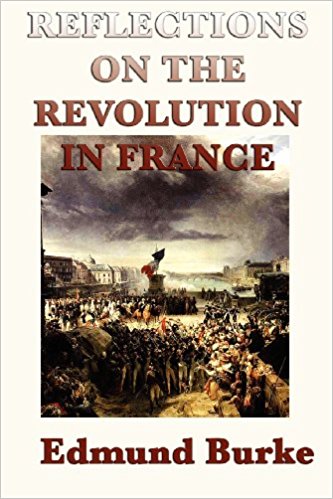|
Reflections on the Revolution in France
by Edmund Burke Published in November 1790 252 Pages Thibault’s Score: 3/5 Edmund Burke is one of those people who is often quoted but rarely read. I didn’t want to be one of those ignoramuses, decided to read quite a bit of Burke over the years. I’ve read numerous fragments and essays, but never sat down and systematically tackled his work. Now I know exactly why he isn’t very often read anymore. Burke’s writing style hasn’t aged very well at all - I found it to be repetitive and slow paced. Like many authors of his time, he writes long sentences that are much slower to read. Despite the aged writing style, the content of the book is very relevant and extremely interesting. I strongly recommend laypeople read the cliff notes / summarized version of this book but don’t recommend spending much time reading it. The spread of revolutionary ideas from the Americas combined with the socioeconomic stress of colonialism had stretched France’s resources thin. As a result, in 1789 a series of crisis occurred including mass protests, the formation of a new revolutionary government, and the storming of key government garrisons like the Bastille. Burke argues that because the legitimacy of the French monarchy was caused by divine authority, the atheism of the enlightenment had delegitimized the French monarchy. Burke concludes that the problems of the French Revolution are inherit in the nature of revolutions. Mob rule and egalitarian dreams challenge traditional institutions which puts society at risk. Traditional institutions, simply by virtue of their age, have had to wither many challenges and often offer good solutions. Burke instead suggests gradual change, and advises political leaders not to succumb to the temptations of frustration. In the case of France, history proves Burke right. Several years after publishing the book came a time known as the Reign of Terror (1793 - 1794) where roughly 17 thousand political dissidents were beheaded. A lesser known atrocity which was covered up by later governments was that Revolutionary France also successfully carrier out an ethnic cleansing in the region known as Vendée, where it is estimated that as many as 250 thousand civilians were murdered. The province of Vendée was inhabited by a distinct cultural group with a unique language which remained loyal to the king of France. After the genocide, the local language has almost entirely disappeared. In light of what is currently happening on the internet and on college campuses, and in light of the current struggles of the Western Millennials, this book is ever more relevant. I myself was a young revolutionary and works by conservative authors like Burke have brought me to my senses. I advise my millennial revolutionary friends, both on the left and the libertarian right to be cautious and fully think out the implications of a revolution. Edmund Burke’s legacy has survived. He is now viewed as the founding father of conservatism, and his legacy is the modern right.
0 Comments
Leave a Reply. |
Thibault SerletMost of my articles are book reviews, but I also write about many other topics. Archives
December 2023
Categories |

 RSS Feed
RSS Feed